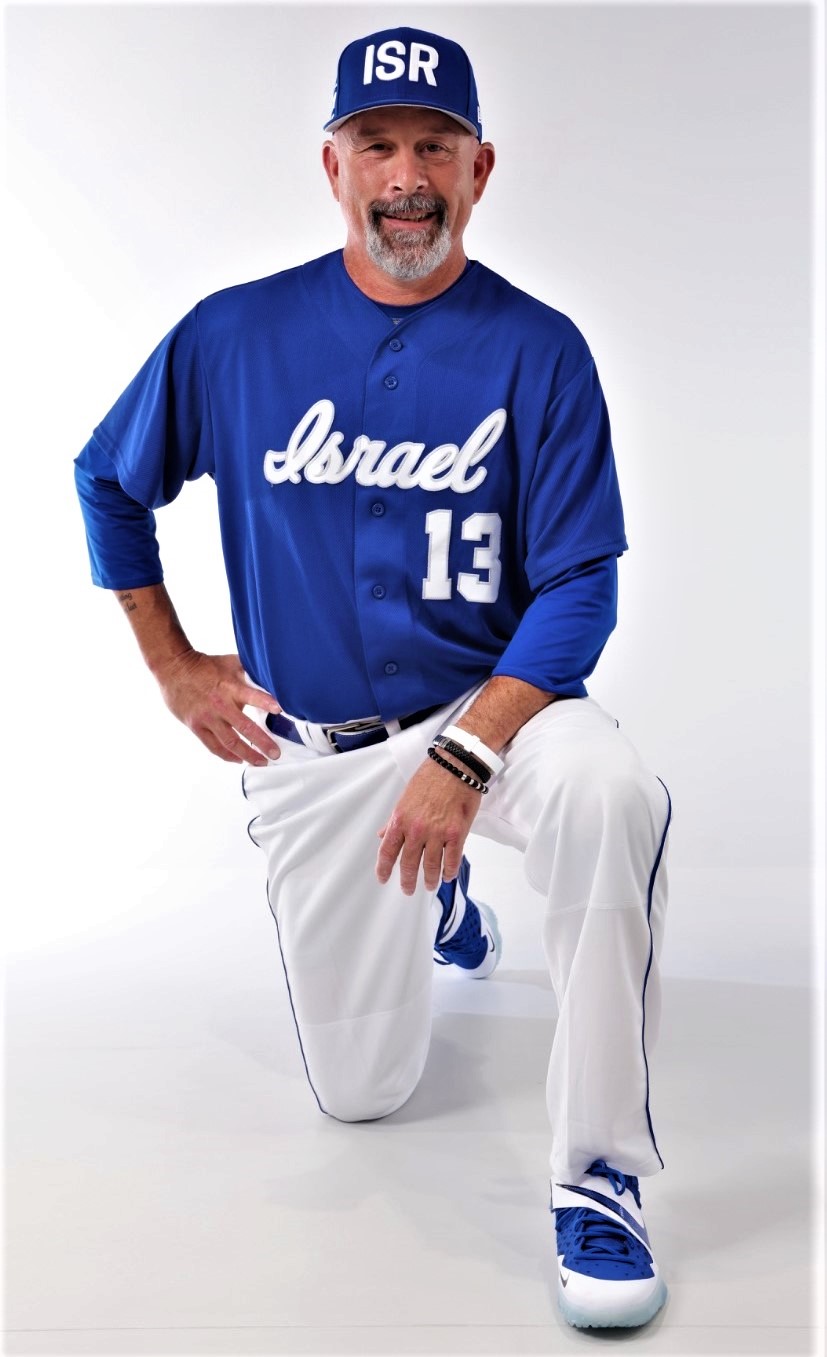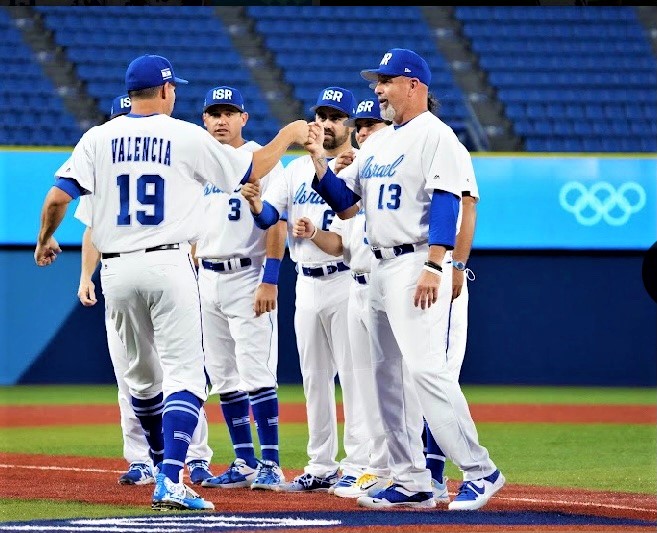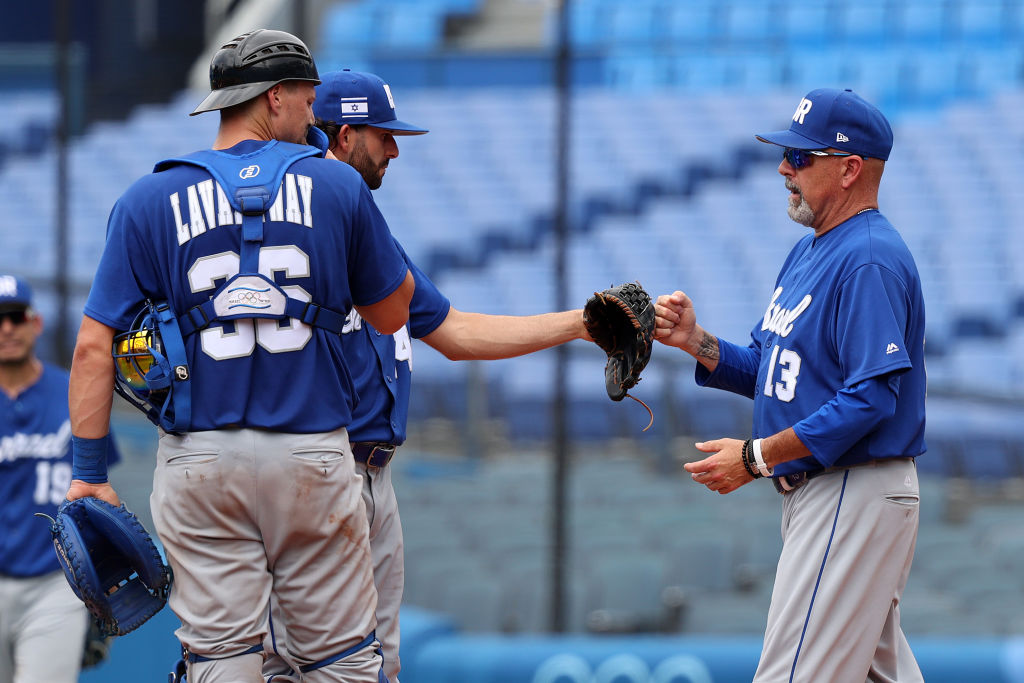Touching Base with Eric Holtz, Westchester Olympian
News Based on facts, either observed and verified directly by the reporter, or reported and verified from knowledgeable sources.
The White Plains-born coach of Israel’s Olympic baseball team recounts his much-anticipated Tokyo experience.

By Dana White
In December of 2019, the Examiner ran a profile of Eric Holtz, the Elmsford business owner and baseball player/coach who had just led underdog Team Israel to an unlikely Olympics berth in Tokyo, one of only six teams to qualify. It would be the first time an Israeli team sport had played in the Olympics since 1976. But COVID-19 had other ideas, and the Games were postponed until August 2021.
Holtz suffered his own case of the coronavirus, became a grandfather, and held his team together through weekly Zoom calls. After 20 months of uncertainty, the Games went on, without spectators. While Team Israel—comprising mostly Jewish-American players who applied for Israeli citizenship—barely missed the medal round, they made history by becoming the first Israeli team in any sport to win a game at the Olympics. (For the record, Japan beat the U.S. for the baseball gold medal; the Dominican Republic beat South Korea for the bronze.)
We caught up with Holtz a week after he got home from Tokyo, back in his office at Game on 13, his baseball training center. The place is packed with young people, and he’s back holding court at his desk, just like he did almost two years ago, talking about what’s next.
Examiner Media: When did you and Team Israel finally start playing together again?
Eric Holtz: This past May the Arizona Diamondbacks hosted us at their spring training facility in Scottsdale. We got five days out there together. It was the first time we’d been together in 20 months, so it was kind of neat. It’s like not seeing your family for 20 months. And we played ten exhibition games leading up to Tokyo in cities around the East Coast. We’d have between 1,500 to 4,000 people, depending on the venue, and we had 5,000 people when we played the New York Boulders in Rockland County. It felt great to see all the support, and the guys really gelled as a team again.
Examiner: Yet there were no spectators allowed in Tokyo. What was it like to play in a silent stadium designed to hold 45,000 people?
Holtz: No different than playing in Valhalla on a Sunday in a men’s league—there’s no fans at my games on Sundays. Personally, I’m used to it. Cheering, screaming fans would have added extra to it, but it didn’t take away from the experience. Baseball was still played; I don’t think any of the outcomes would have been changed because of fans. But it was weird for every athlete in every sport to not have anybody there. It was bizarre.
Examiner: You’re very close to your family. Was it hard that they couldn’t be in Tokyo, rooting for you?
Holtz: From a coach’s perspective, you preach, ‘Control what you can control, on the ballfield and in life.’ It would’ve been nice to have my family there, but we had to be prepared to do what we needed to do.
Examiner: You had a 1-4 record for the Games, but two of those losses were pretty close…
Holtz: We played Korea first. We played the USA. Then we beat Mexico 12-5. It was great. They were ranked seventh in the world; we were 24th. It was an exciting game; they went out early, we came back, we put it on ‘em late in the game, they brought in an ex-Met pitcher Oliver Perez, we put up six runs against him and put it out of reach. We could’ve won three games, but Mexico will be the game that will go down in history because Israel won.
To lose 11-1 after that to Korea, that was the throwaway game, only because after winning the day before, we didn’t have a whole lot of pitchers left. It was a bad day. In the course of a season, you can come back from a bad day, but in a tournament, you can’t really do that.
Examiner: When did it hit you that, Wow, finally I’m at the Olympics?
Holtz: It’s funny, I don’t know how to answer that. I don’t get like that, it’s not who I am, it’s probably why I’m a pretty good coach. The way I look at it is, we have a job to do. I’m a very emotional person other than when I’m coaching baseball because if I get too high or too low my guys feed off of me, good or bad.
My best pitcher, Jon Moscot, tore his UCL [ulnar collateral ligament] four innings into the first game against Korea. My best pitcher! How do you plan for that? If I showed panic, then what happens to the team? So I walk out, look at my coaches and go, I guess we go to plan B! You can’t fly somebody in; once the Games start, that’s your roster, there’s nobody else available. We had to use guys over and over and over again. Which is why what we did with what we had is so much more incredible.

Examiner: You almost got to the medal round!
Holtz: We were literally banged up, beaten, injured, and broken. We did things that no Israel team has done in 40 years: We won a game in the Olympics. We were close in two other games with this scenario. It was incredible the way the team just came together again, fighting through any adversity that was thrown at us. Whether it was COVID, having to test every day and thinking, “Oh shit, this is inconclusive, I’m sick.’ The mental and emotional part. Losing our best pitcher in the first game. We kept fighting, kept fighting. We were one inning away from sending the Dominican Republic home and competing for a bronze medal. The last batter of the last inning hit a walk-off home run to beat us 7-6.
Examiner: That must have been disappointing.
Holtz: Sure, you’re always disappointed when you don’t finish first. Proud? I’m proud beyond words of everyone that put on that uniform that offered to help in any way they could. After tearing his UCL, Jon Moscot comes into my room and says, ‘Holzie, I don’t know if you realize this, I’m a plus runner. If you need me to pinch run, I can.’ These are the type of young men that we had. Against all odds. We’re ranked No. 24 in the world, we fought the No. 2, the No. 3, and No. 5 to the end of every game. How can I be disappointed? No competitor is ever happy just showing up.
Examiner: How was staying in the Olympic Village?
Holtz: It was awful, disgusting. My room was sheetrock walls with a cardboard bed. I shared two bathrooms with seven grown men. At 55, sleeping on a cardboard bed and spending two and a half weeks in your room with no TV, sketchy WiFi, and unfinished walls–I don’t think a little comfort is too much to ask for. The food was great though. It was the biggest food court you can imagine, two floors, 200,000 square feet, open 24 hours a day. The Village itself was great, the gym was great. Living there was horrendous.
Examiner: The cardboard beds in the Olympic Village were a running joke during the Games, but your guys got some grief for it….
Holtz: The bed scenario was one of the funniest things I’ve ever seen. You’re asking grown adults to be locked in a village, you can’t socialize, you have to wear a mask, so shit’s gonna happen, right? So the players do this TikTok video to see how many people could stand on the bed before it collapsed. It goes viral overnight, it’s everywhere, right? It was an extra bed. Next day we get an email from somebody in Israel saying that you have embarrassed us and our relations with Japan; you are mocking an award-winning Japanese engineer who created this bed. Are you kidding me?
The kid that posted it had to send an apology video. Two days later, once it starts calming down, we get another email saying, ‘And on top of this nobody had masks on and you weren’t social distancing.’ The Palestinian websites picked up on it and said, ‘Look at what savages these people are.’ You have no idea. I could care less about that. They broke a bed that wasn’t being used and that’s going to be recycled. Come on.

Examiner: Was it strange playing Team USA, when the Israeli team was mostly Americans?
Holtz: In the beginning, yeah, it was weird, singing Hatikvah, the Israeli national anthem, and just listening to the American one. But once the game started, we wanted to kill them the way they wanted to kill us.
Examiner: You have resigned as head coach of Israeli baseball. Are you fielding offers from other teams?
Holtz: I’ve been approached already by a few teams so far. I’m open at this point to try something new or just stay in the world that I’ve created here. I’m good either way. I have the mentality of a 20-year-old, but I’m also 55 and I’m very happy, I have my family around, my granddaughter. If the offer is right and it’s a challenge, I’d be open. If it was high-level minor-league pro baseball, I would listen, sure. Some people have reached out about motivational speaking within the Jewish community, talking about the story of Israeli baseball. I’m thinking about writing a book. I’m open to a lot of different things, and I’ll see what happens when I grow up.
Examiner: What does the team’s international success mean for Israel baseball?
Holtz: I can’t answer what it means, I can only answer what I want it to mean. I have gotten no compensation for doing this for the past four years–part of the reason I stepped away. My goal was to grow the game organically in Israel. So if 200, 300 Israeli kids saw us play and said, Holy cow, and they want to start playing baseball, then we did our job. For me, that’s what I’ve wanted from day one, to grow the greatest game in a great country. Only time will tell. The guys went through hoops to represent Israel and show the world that we can do this. We can compete.
Dana White is a freelance writer living in Ossining, where she is a Village Trustee and still trying to finish a novel. She profiled Eric Holtz in December 2019 for The Examiner.

Examiner Media – Keeping you informed with professionally-reported local news, features, and sports coverage.
